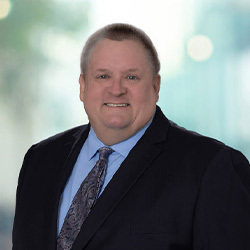

The Takeaway
The high volume of asbestos cases being filed in the Circuit Court of the City of St. Louis (Missouri) has prompted the need for procedural changes in how those cases are managed. A separate asbestos track, as well as changes in how and when cases are set for trial, may take effect in 2026.
The Need for Procedural Changes
The Missouri Circuit Court, Twenty-Second Judicial Circuit (“City of St. Louis” or “the Court”) is one of the most popular jurisdictions in the United States for filing asbestos lawsuits.
These cases are typically filed by individuals (or their families) who’ve allegedly been harmed by exposure to asbestos-containing products and diagnosed with asbestos-related diseases such as mesothelioma, lung cancer, or other cancers.
In 2020, the City of St. Louis had the nation’s fifth highest number of asbestos lawsuits filed (197).[1] That ranking held steady in 2021 (with 198 cases filed), while 2022 and 2023’s filings were sixth highest (at 140 and 168, respectively).[2] Additionally, the number of asbestos lawsuits filed in 2023 rose 21% compared to 2022— nearly three times the national average of 8%.[3] (Although numbers aren’t yet available for 2024, 75 asbestos cases had been filed by the end of June.)[4]
This large asbestos case volume—coupled with the number of trials postponed by COVID-19—has created a backlog of asbestos cases in the Court.
Current Procedure
Currently, when an asbestos lawsuit is filed, it follows this standard protocol.
Case Filing and Initial Assessment
- Within 30 days of filing, all circuit-level civil cases in the City of St. Louis are assigned to the Court’s Division 1.
Track Assignment
- Cases are categorized as Track 1 or Track 2 based on trial readiness timelines in Local Rule 31.[5]
- All asbestos cases are assigned to Track 2 on the General Docket and thus required to be ready for trial 370 days from the date of filing.[6]
Initial Trial Docket
- Cases are placed on a Division 1 Regular Trial Docket (as posted on the Court's website).
- These cases may be assigned to a General Division for trial based on readiness and Local Rule 31 timelines.[7]
Roll-Over Process
- If a case has not resolved during its scheduled trial week, it’s rolled over to a new trial date (usually within 45 to 60 days) using the Rotational/Roll-Over Docket.
Peremptory Trial Settings
- The Presiding Judge may approve a peremptory trial setting,[8] which:
Proposed Changes
In April 2025, Presiding Judge Christopher McGraugh held a mandatory status conference to address the backlog of over 200 asbestos cases remaining on the Rotational/Roll-Over Docket (cases not yet assigned peremptory trial dates or scheduling orders). Various counsel were required to appear to explain the status of their cases and their upcoming intentions for handling the cases.
During that mandatory status conference, Judge McGraugh also highlighted the number of asbestos cases recently on the Rotational/Roll-Over Docket. He indicated the Court’s preference for potentially reforming the procedures for handling asbestos cases beginning in 2026. He noted that only four asbestos cases had been tried in the City of St. Louis in the last five years. As a result, many juries were unnecessarily subpoenaed for two-week asbestos cases.
Establishing a Separate Asbestos Case Track
Preliminary discussions were held about potentially breaking out asbestos or all toxic tort cases from the rest of the civil cases and placing them on a new Track 3. This track would potentially have no time limits and require additional internal guidelines.
In June 2025, Judge McGraugh held a follow-up status conference, during which he also discussed potential 2026 procedural reforms for asbestos cases. Also in attendance were Judges Theresa Counts Burke, Madeline O. Connolly, Joseph Whyte, and Joan Moriarty, along with multiple plaintiffs’ and defense attorneys.
Judge McGraugh again indicated asbestos cases may be better handled by putting them in a separate track. Those present discussed how best to do that, including the option of having one of the parties or the Court make such a request.
Although the Court will decide how to implement this separate-track approach for asbestos cases, we expect it to apply to future asbestos cases. The goal is to alleviate constraints on the overall length/duration of certain cases.
Revising the Rotational/Roll-Over Docket
Judge McGraugh also discussed the number of asbestos cases remaining on the Rotational/Roll-Over Docket without being peremptorily set for trial dates.
He suggested implementing an “announcement” date for asbestos cases that would be conducted a designated number of months after a case had been filed. At that time, plaintiffs’ and defense attorneys would be required to appear in Division 1 to state whether the matter was ready to be peremptorily set for trial, and if not, to explain why not, as well as project a date when the case would be ready to set for trial.
Potential consensus was reached that the future announcement date could be set for 12 months from the date an asbestos case was filed. At that time, the parties would be expected to set a peremptory trial date an additional 9 to 14 months out, with a corresponding case management order. (That date, of course, would depend on the need for additional discovery/investigation. Otherwise, again the parties would need to explain why a case could not be set for a peremptory trial date and project a date when it could be.)
Maintaining Scheduled Motion Dates
Participants at the June meeting also discussed motion hearing dates and their potential impact on other civil cases.
Most motions in circuit civil cases are addressed in two motion divisions[11]: motions in cases with odd-numbered cause numbers are conducted in Division 7, while those with even-numbered cause numbers are conducted in Division 20.[12] Currently, motions in asbestos cases are heard every Tuesday morning, alternating weeks between cases ending in odd and even numbers.
Judges Moriarty and Whyte (the current motion judges) indicated that a motion hearing can always be added onto an existing case that already has a motion on the hearing docket. In addition, a request can be made for a special setting for a hearing outside of the typical Tuesdays. It appeared that the Court decided that asbestos cases will still have two motion days per month for any given case, and additional civil motion dockets may be set to proceed directly after weekly asbestos motion dockets.
Need help defending your business against these high-stakes lawsuits? HeplerBroom's asbestos attorneys have been successfully defending asbestos and other toxic tort lawsuits in some of the country’s most challenging jurisdictions for nearly 40 years. We make it our business to stay on top of jurisdictional procedures so you can concentrate on your business.
[1] https://www.kcic.com/media/2253/kcic_asbestos2022report.pdf
[2] Id. See also https://judicialhellholes.org/hellhole/2024-2025/st-louis/
[3] Id.
[4] Id.
[5] See Missouri Circuit Court, Twenty-Second Judicial Circuit, Docket Procedure.
[6] See Local Rule 31.5.
[7] Missouri Circuit Court, Twenty-Second Judicial Circuit, Docket Procedure.
[8] Id.
[9] Id.
[10]Id.
[11] Id.
[12] Id.
- Associate
Carl J. Geraci defends a variety of clients in toxic tort litigation ranging from family-owned businesses to Fortune 500 companies. For 20 years, he has represented manufacturers, premises owners, suppliers, and contractors in ...
- Partner
Michael J. Chessler defends a diverse range of companies—from small family-owned businesses to Fortune 500 companies. His goal is to reduce clients’ financial exposure by obtaining dismissals or favorable resolution of ...



